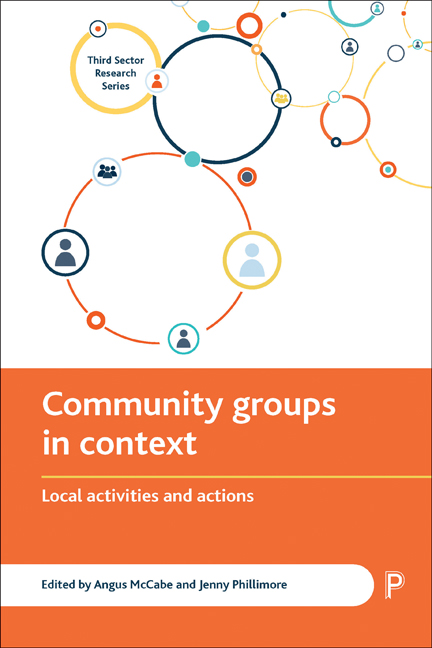Book contents
- Frontmatter
- Contents
- List of tables and figures
- Foreword
- Series editor’s foreword
- Acknowledgements
- Notes on contributors
- Introduction Why get below the radar? The importance of understanding community groups and activities
- Part One Scoping and mapping community actions and activities
- Part Two Community groups and activities in context
- Part Three Under-explored radars
- Part Four Thinking about voice, learning and emotion below the radar
- Index
fourteen - Conclusion: thinking back and looking forward
Published online by Cambridge University Press: 05 April 2022
- Frontmatter
- Contents
- List of tables and figures
- Foreword
- Series editor’s foreword
- Acknowledgements
- Notes on contributors
- Introduction Why get below the radar? The importance of understanding community groups and activities
- Part One Scoping and mapping community actions and activities
- Part Two Community groups and activities in context
- Part Three Under-explored radars
- Part Four Thinking about voice, learning and emotion below the radar
- Index
Summary
Thinking back over almost a decade of research with below the radar community groups, what has changed? At one level, very little. To adapt Davidson and Packham's phrase (2012), community groups continue to emerge, grow, die and, if not thrive, get by.
Yet, in other ways, plenty has changed. Much has been written on the impact of the austerity cuts on charities and smaller, formal, voluntary organisations operating at a community level (Milbourne 2013; Kenny et al, 2015). Some of the groups interviewed in our research that grew following Area Based Initiative funding have either closed, become dependent on the Big Lottery, replaced small-scale local authority grants with Awards for All money or attempted to survive (in the short term) on reserves or by returning to their roots in volunteering. Some activists have burnt out or ‘retreated’ from taking on the big issues that impact on their communities.
Loss of income, with less money (never mind funding) circulating around many communities, has been just one factor (see Chapters Four and Six) that has affected groups. Uncertain labour markets have also had an impact on levels of volunteer involvement and activism. The reduction in access to pro-bono advice and no-/low-cost meeting spaces has also taken its toll (see the case studies in Chapter Six). Further, partly to survive, some groups have taken on new, service delivery, roles diversifying from their original purpose of advocating on behalf of their community. The extent to which this has affected their ability to lobby and act, predominantly, as a voice for their community requires further examination, as does whether such groups are sufficiently competent to take on new service delivery roles.
With further cuts and hard times to come (Hillier, 2016), what does the future for small voluntaries and, in particular, below the radar community groups hold?
Predicting the future of the third sector, or wider civil society, is notoriously difficult. Visioning is fraught with problems. As Deakin (1995) noted, the anticipated demise of charity in 1945, with the introduction of the welfare state, was more than slightly wide of the mark. Similarly, as noted, prophesies of a doomed voluntary and, particularly, community sector in 2010 have proved false.
- Type
- Chapter
- Information
- Community Groups in ContextLocal Activities and Actions, pp. 281 - 290Publisher: Bristol University PressPrint publication year: 2017

